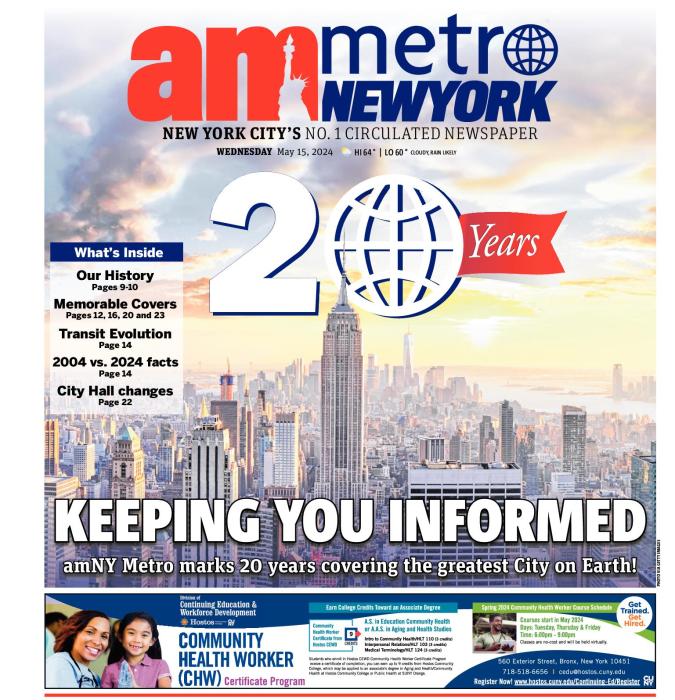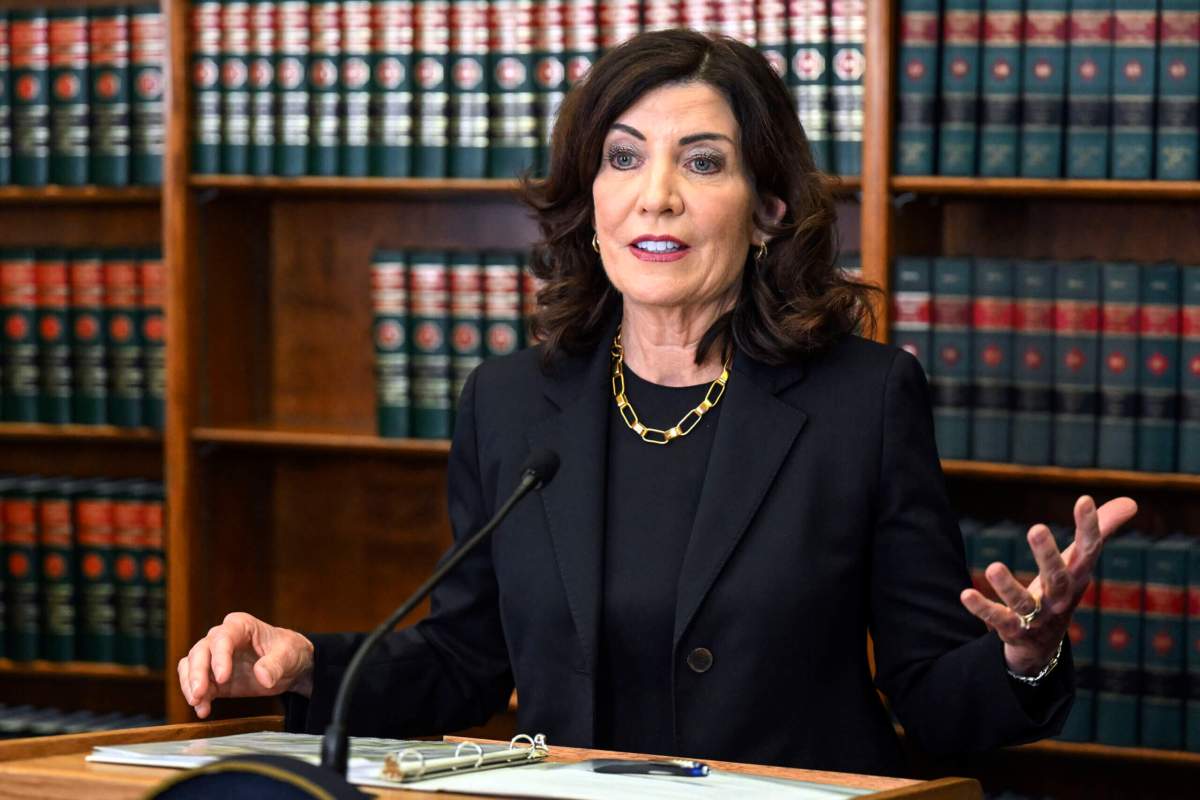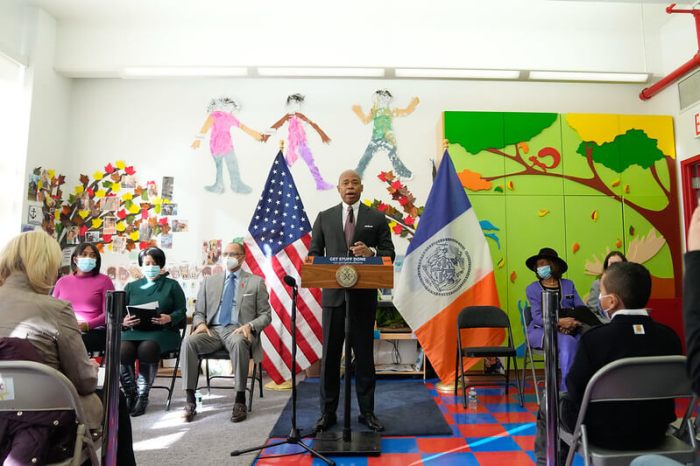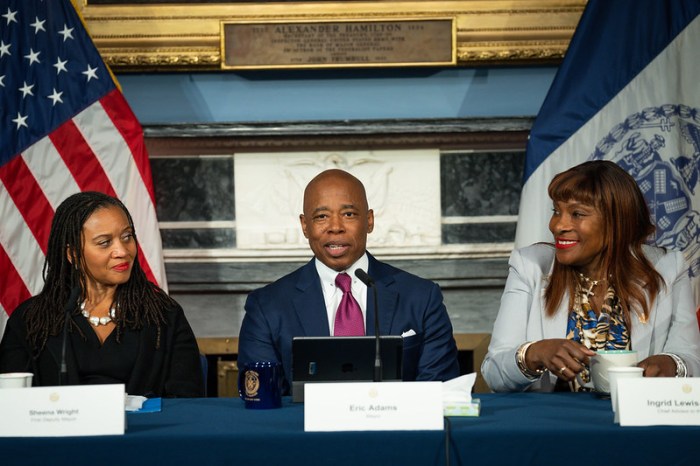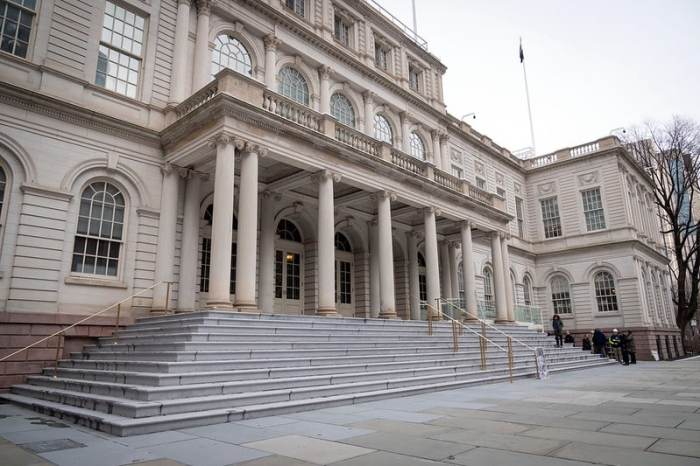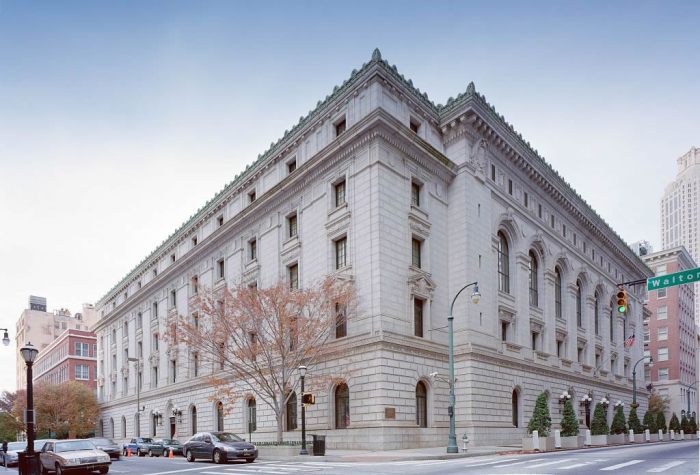The Legal Aid Society on Wednesday excoriated Gov. Kathy Hochul’s administration for recently supporting the city’s push to suspend the legal requirement that it provide shelter to those in need as the migrant influx rages on.
Hochul’s administration made its support for the city’s recently revised request to a Manhattan Supreme Court to suspend the shelter provision, known as the right-to-shelter, official in a letter to the court last week.
Legal Aid, which represents the Coalition for the Homeless in the 1981 case that established the right-to-shelter, argues the state is supporting a move that could leave thousands of migrants and homeless longtime New Yorkers to fend for themselves on city streets.
The group laid out its position in a Wednesday letter to the judge now overseeing the case — Gerald Lebovits.
In the missive, the legal organization contends the state is supporting a drastic move by Mayor Eric Adams that would “eviscerate” the right-to-shelter. At the same time, the group says Albany has failed to provide the city with enough of the money and resources it has requested to help shoulder the influx of nearly 130,000 newcomers.
During a virtual press conference discussing the letter, Coalition for the Homeless Executive Director David Giffen charged that Hochul has “not stepped up” in a meaningful way to handle the migrant influx. He said she should have taken charge of the crisis long ago, considering the right-to-shelter is enshrined in the state constitution.
“The right-to-shelter does derive from the New York State Constitution and the governor has simply not stepped up here to take control of the situation and to take any kind of leadership position in this crisis,” Giffen said. “The influx of asylum seekers into New York City should have been something that from day one, the governor stepped in to take control over as a statewide issue.”
Legal Aid attorney Josh Goldfein said his organization would like the city to keep working with them in addressing the crisis through “court-supervised mediation,” rather than continuing to pursue a roll back to its shelter obligations.
“A better solution would be to try to work out what the city actually needs to solve the problem, rather than having an abstract legal argument about what the constitution means,” Goldfein said. “It would seem to be a better route to actually addressing what the city’s needs are. But if the case is going to be fully litigated as the city has asked them, we’re going to make our best case to show why the right-to-shelter is so important for protecting human life.”
The Adams administration argues that with 64,000 of the nearly 130,000 migrants currently in its care, and thousands more arriving each week, it has run out of room for accommodating more new arrivals.
The change the city is seeking would exempt it from the shelter mandate whenever there is a spike in the number of single adults entering its system and a declared city or state emergency. It says the move would relieve it of the strain the crisis has placed on its resources and finances.
Adams spokesperson Jonah Allon, in an emailed statement, argued the 1981 consent decree that established right to shelter — Callahan v. Carey — did not anticipate the shelter population ever ballooning to its current size. He added that the city’s request is simply that it be treated like other municipalities throughout the state during times of emergency, which is not currently the case under the consent decree.
“The Callahan decree — entered over 40 years ago, when the shelter population was a fraction of its current size — was never intended to apply to the extraordinary circumstances our city faces today,” Allon said. “The city is not seeking to terminate Callahan; we are simply asking for the city’s obligation’s to be aligned with those of the rest of the state during states of emergency.”
While the state has provided the city with some funding and resources, including an effort to assist the city in identifying migrants who are eligible for work permits and a program to resettle some to counties outside the Big Apple, Giffen said the efforts have been “too little, too late.”
For instance, Legal Aid argues the state’s resettlement program, dubbed the “Migrant Relocation Assistance Program” (MRAP) and designed to connect work eligible migrants with upstate employers in need of workers, only successfully relocated five families outside the city as of the beginning of this month.
The state should not be supporting the effort to suspend right-to-shelter, Legal Aid argues in the letter, when it has barely moved any families outside the city.
“The state defendants cannot claim the proposed modification to the judgment is necessary when the state has failed to make any significant effort to implement the State’s own proposed remedy,” the group’s letter reads.
Furthermore, they contend the state has “refused” to let the city use state or federally-owned land outside the five boroughs as migrant shelters — even those the White House has offered up.
“There are a number of sites that the state refused to sign off on,” Goldfein told reporters. “We’ve asked the question why and we have not received an answer.”
Additionally, they said the governor has “failed” to issue an executive order forcing counties outside the city, many of which have moved to block migrants from their jurisdictions, from housing a portion of new arrivals currently in the city’s care. Hochul, during a televised address in late August, explicitly said that she would not use her executive powers to compel municipalities outside the city to shelter migrants.
Overall, Giffen said it appears the city and state are hoping the picture of thousands of people sleeping on the streets, caused by suspending the right-to-shelter, will discourage more new arrivals from deciding to come to New York City.
“It does seem that their hope here is that the public spectacle of human suffering will serve as some kind of deterrent to more people coming to New York City,” he said. “We believe that’s not only a bad strategy, an inhumane strategy, but one that will fail.”
Representatives for the governor’s office did not respond to requests for comment by publication time.
